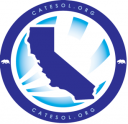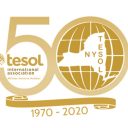|
Academic journals tend to be isolated islands: each taking care of its own readership, authors, and manuscripts. Cross-pollination or conversations among journals are not commonly witnessed. That is why the TESOL affiliate journals' collaboration on the TESOL conference panel presents a true novelty in idea sharing and affiliate supportive spirit. Sometime back in the fall of 2018, each of us found an email from Margi in our inboxes. It was an interesting proposal to present on the panel together, all of our journals discussing each publication's specific aspects. The emphasis was to be on demystifying the publishing process. The invitation generated almost immediate enthusiasm and acceptance by all. We worked on the panel questions until the morning of the presentation when we met for coffee and to calm each other's nerves. It was during that pre-panel event that the seed for this collaborative report was first sown! Once our panel session was over, we decided to share the experiences with a wider audience and empower and encourage more authors to consider submitting to our journals. In what follows, each of the journal editors shares a brief perspective on the special aspects of their journal and how the journal fits in within the number of others published by TESOL affiliates. Special focus will be given to the notion of mentoring journals: Each of our publications does some form of mentoring authors. This aspect of supporting junior scholars and practitioners sets us apart from many other currently available publications.
 The Association of British Columbia Teachers of English as an Additional Language (BC TEAL) invite submissions to the BC TEAL Journal, a scholarly peer-reviewed publication dedicated to open access and the free dissemination of knowledge. It envisions its authors, peer reviewers, and readers as scholar-practitioners who invest in their intellectual well-being through engagement in professional development and ongoing contributions to the field. It posits teaching as an act of knowledge creation. It recognizes knowledge deserves sharing with as few barriers as possible and as many supports as needed. The journal publishes longer research articles and shorter theoretical analyses, classroom practice descriptions, opinion essays, and book reviews. These articles connect theory, research, and practice to better understand the implications for teaching and learning. In recent years, while not limited to these themes, articles have been published related to K-12 classrooms, teaching English to adult newcomers, English for academic purposes, post-secondary contexts, and teacher education. Key to the journal's success is an eight-step pathway to publication that carefully guides authors from submission, through the peer review process, and onto the final stages of copy editing and proofreading. In particular, developmental editorial support can help authors respond to peer reviewer comments and prepare a strengthened manuscript suitable for publication. The Association of British Columbia Teachers of English as an Additional Language (BC TEAL) invite submissions to the BC TEAL Journal, a scholarly peer-reviewed publication dedicated to open access and the free dissemination of knowledge. It envisions its authors, peer reviewers, and readers as scholar-practitioners who invest in their intellectual well-being through engagement in professional development and ongoing contributions to the field. It posits teaching as an act of knowledge creation. It recognizes knowledge deserves sharing with as few barriers as possible and as many supports as needed. The journal publishes longer research articles and shorter theoretical analyses, classroom practice descriptions, opinion essays, and book reviews. These articles connect theory, research, and practice to better understand the implications for teaching and learning. In recent years, while not limited to these themes, articles have been published related to K-12 classrooms, teaching English to adult newcomers, English for academic purposes, post-secondary contexts, and teacher education. Key to the journal's success is an eight-step pathway to publication that carefully guides authors from submission, through the peer review process, and onto the final stages of copy editing and proofreading. In particular, developmental editorial support can help authors respond to peer reviewer comments and prepare a strengthened manuscript suitable for publication.
 Designed to address the interests and needs of practicing teachers, teacher-trainers, researchers, program administrators, advocates, and graduate students, The CATESOL Journal aims to present articles with clear and practical implications for pedagogy, program design, and advocacy as well as insights and conclusions that may make our readers rethink, add to, or change the way they teach and work. Given these goals, the journal is also designed as a venue for items that might not fit into the constraints of a "traditional" research article template and don't always get traction in publications. Not only do these articles deserve a chance to be shared with the TESL community, but they provide the very insights practitioners want and need. And just as we aim to support the publication of a variety of articles for a wide readership, we also aim to support various authors, from the experienced to the novice. Our editorial review board members volunteer many hours, providing constructive feedback for revision to make the publishing experience a constructive, successful one for authors. Our goal is to support and mentor authors, start to finish, from the germ of an idea to the culmination of that idea in a publication. Feel free to reach out to us with an idea, a first draft, or a fleshed-out manuscript. We will meet you where you are. Designed to address the interests and needs of practicing teachers, teacher-trainers, researchers, program administrators, advocates, and graduate students, The CATESOL Journal aims to present articles with clear and practical implications for pedagogy, program design, and advocacy as well as insights and conclusions that may make our readers rethink, add to, or change the way they teach and work. Given these goals, the journal is also designed as a venue for items that might not fit into the constraints of a "traditional" research article template and don't always get traction in publications. Not only do these articles deserve a chance to be shared with the TESL community, but they provide the very insights practitioners want and need. And just as we aim to support the publication of a variety of articles for a wide readership, we also aim to support various authors, from the experienced to the novice. Our editorial review board members volunteer many hours, providing constructive feedback for revision to make the publishing experience a constructive, successful one for authors. Our goal is to support and mentor authors, start to finish, from the germ of an idea to the culmination of that idea in a publication. Feel free to reach out to us with an idea, a first draft, or a fleshed-out manuscript. We will meet you where you are.
 MEXTESOL Journal is one of the first to establish the scholarly tradition for affiliates. In its forty-four years, the MEXTESOL Journal (MJ) has grown from a fancy newsletter into an indexed, open-access, international journal dedicated to EFL. In the past year, with our acceptance into SCOPUS, we have advanced from a three-person operation to a group of nine volunteer editors and over fifty reviewers. One of our major concerns is in being more than a professional journal. Besides publishing articles from EFL professionals, we want to be a "teaching journal" that helps MA and recent Ph.D. students and classroom teachers learn how to publish as they go through the reviewing process. We don't evaluate submitted papers through traditional review. Rather, we mentor all our manuscripts through a one-to-one blind review/mentoring process. Through many revisions, the patient mentors walk their authors through the review process, explaining concepts when needed, and offering encouragement and support. This process can occasionally take over a year. We also have a more limited program of mentors who, before the review process, help authors from areas where learning academic English and publishing an article isn't common. Our editors have found that they are mentors, as they often have to guide reviewers away from a traditional reviewing process into mentoring. MEXTESOL Journal is one of the first to establish the scholarly tradition for affiliates. In its forty-four years, the MEXTESOL Journal (MJ) has grown from a fancy newsletter into an indexed, open-access, international journal dedicated to EFL. In the past year, with our acceptance into SCOPUS, we have advanced from a three-person operation to a group of nine volunteer editors and over fifty reviewers. One of our major concerns is in being more than a professional journal. Besides publishing articles from EFL professionals, we want to be a "teaching journal" that helps MA and recent Ph.D. students and classroom teachers learn how to publish as they go through the reviewing process. We don't evaluate submitted papers through traditional review. Rather, we mentor all our manuscripts through a one-to-one blind review/mentoring process. Through many revisions, the patient mentors walk their authors through the review process, explaining concepts when needed, and offering encouragement and support. This process can occasionally take over a year. We also have a more limited program of mentors who, before the review process, help authors from areas where learning academic English and publishing an article isn't common. Our editors have found that they are mentors, as they often have to guide reviewers away from a traditional reviewing process into mentoring.
 Balancing academic rigor and access is the overarching goal of the NYS TESOL Journal (NYSTJ). It is envisioned to provide a broad spectrum of English language teaching settings. It includes multiple perspectives on theory and practice issues. Thus, the editors work with submissions coming from senior scholars, junior researchers, and practitioners in the field of ESOL and ELT. But we are also a mentoring journal supporting scholars who have just entered the field of publishing. In this regard, our reviewers provide generous feedback and often guide authors through multiple revisions to help them reach the publication stage. Another aspect of NYSTJ is its interaction with the readership. Audience participation is highly valued, and we encourage our readers to engage ideas expressed in published articles. Our Readers' Comments and Views section calls for audiences everywhere to respond to published topics of interest, offer an alternative side to issues, or share their own stories regarding a particular theoretical or pedagogical article. We are accessible online and via email. We encourage authors to reach out and start the publishing conversation. Balancing academic rigor and access is the overarching goal of the NYS TESOL Journal (NYSTJ). It is envisioned to provide a broad spectrum of English language teaching settings. It includes multiple perspectives on theory and practice issues. Thus, the editors work with submissions coming from senior scholars, junior researchers, and practitioners in the field of ESOL and ELT. But we are also a mentoring journal supporting scholars who have just entered the field of publishing. In this regard, our reviewers provide generous feedback and often guide authors through multiple revisions to help them reach the publication stage. Another aspect of NYSTJ is its interaction with the readership. Audience participation is highly valued, and we encourage our readers to engage ideas expressed in published articles. Our Readers' Comments and Views section calls for audiences everywhere to respond to published topics of interest, offer an alternative side to issues, or share their own stories regarding a particular theoretical or pedagogical article. We are accessible online and via email. We encourage authors to reach out and start the publishing conversation.
 The Massachusetts Association of TESOL (MATSOL) publishes the bi-annual newsletter MATSOL Currents. We think of ourselves not as an academic journal but as a professional journal, focused on our local community of educators in Massachusetts and neighboring states. We inform our readers about important events and trends in the world of TESOL, with an emphasis on the English language and bilingual education in our own area. As such, we publish reports on MATSOL's activities and offerings; personal accounts from teachers, administrators, and students; research with practical implications for area educators; reviews of books and teaching materials; and short articles about successful school programs and teaching approaches, including teacher education programs, community outreach, and public issues that affect our students and our field. We encourage submissions from all parts of our community—PreK- 12 teachers and administrators, adult educators, community college faculty, teacher educators, and English learners. Because many of our writers are inexperienced, we provide assistance, as necessary, with such matters as sharpening the topic, developing the content, working out the order of presentation, identifying and referencing sources, and honing the language to achieve a final product of which we can all be proud. What do affiliate-focused journals like ours have to offer? We tell our readers about new ideas and developments in the field and help them stay engaged and informed about what is going on in their own community. And we offer a good starting place for writers who haven't published before or haven't published much, but who have interesting ideas and experiences that they are eager to share. The Massachusetts Association of TESOL (MATSOL) publishes the bi-annual newsletter MATSOL Currents. We think of ourselves not as an academic journal but as a professional journal, focused on our local community of educators in Massachusetts and neighboring states. We inform our readers about important events and trends in the world of TESOL, with an emphasis on the English language and bilingual education in our own area. As such, we publish reports on MATSOL's activities and offerings; personal accounts from teachers, administrators, and students; research with practical implications for area educators; reviews of books and teaching materials; and short articles about successful school programs and teaching approaches, including teacher education programs, community outreach, and public issues that affect our students and our field. We encourage submissions from all parts of our community—PreK- 12 teachers and administrators, adult educators, community college faculty, teacher educators, and English learners. Because many of our writers are inexperienced, we provide assistance, as necessary, with such matters as sharpening the topic, developing the content, working out the order of presentation, identifying and referencing sources, and honing the language to achieve a final product of which we can all be proud. What do affiliate-focused journals like ours have to offer? We tell our readers about new ideas and developments in the field and help them stay engaged and informed about what is going on in their own community. And we offer a good starting place for writers who haven't published before or haven't published much, but who have interesting ideas and experiences that they are eager to share.
While published by different TESOL International Association affiliates, these journals share a common dedication to supporting both seasoned and novice authors during the publication process. However, these journals also have their own unique strengths and ways of doing things. For example, the NYS TESOL Journal excels at engaging its readership, the BC TEAL Journal embodies the notion of the scholar-practitioner, the MEXTESOL Journal leads the field in mentorship, The CATESOL Journal emphasizes inclusion of different voices by publishing a variety of article types, and MATSOL's Currents puts the focus on the local community. By coming together at events, such as the TESOL International Convention, TESOL affiliate journal editors can share their strengths and learn from each other to better carry out their work. TESOL affiliate journals do not have to work in isolation. They can only benefit from continued cross-pollination and collaboration. |

